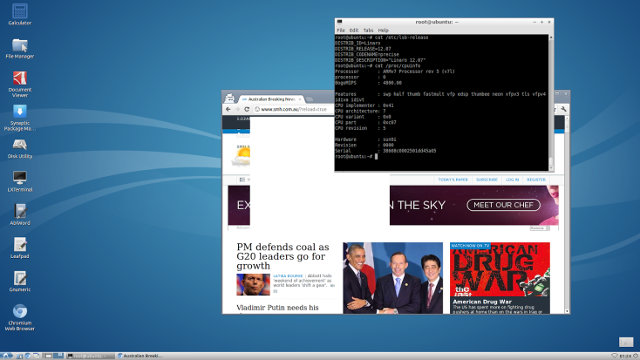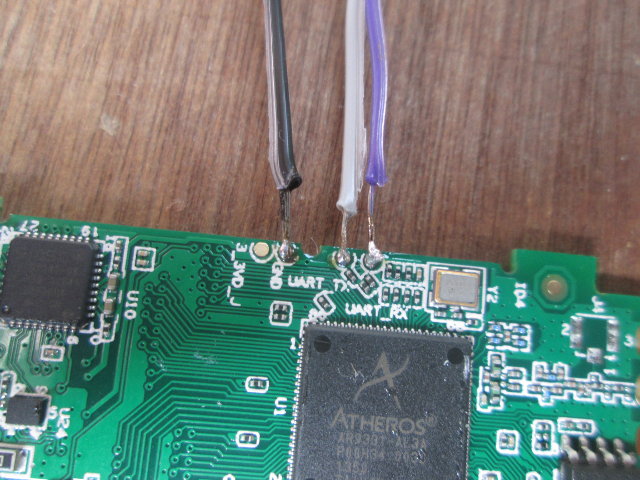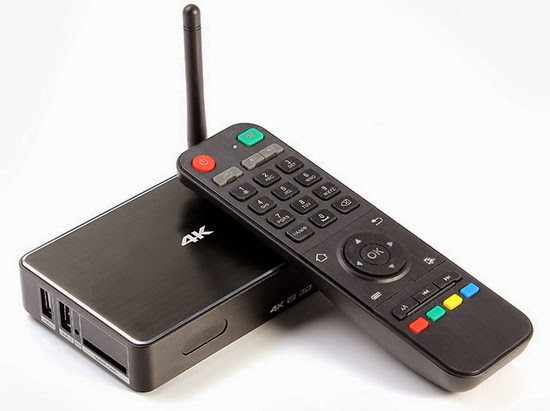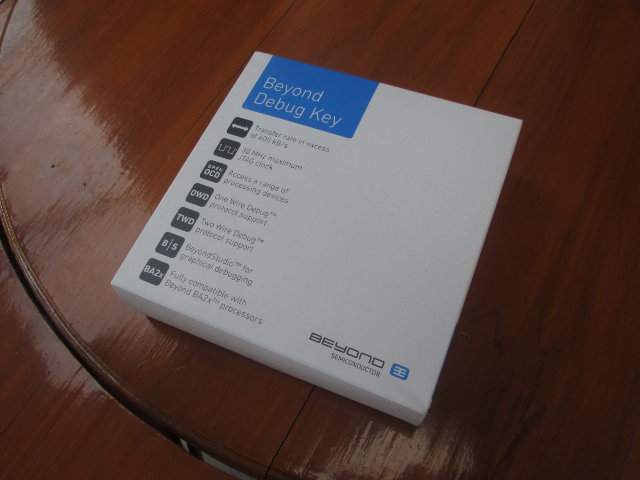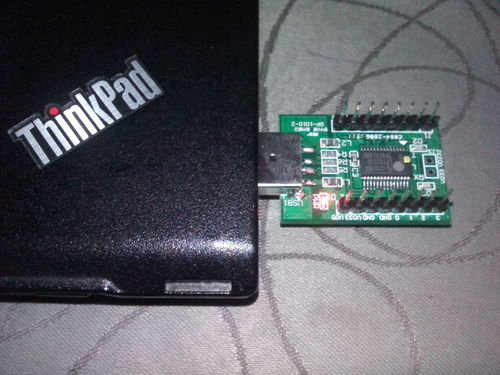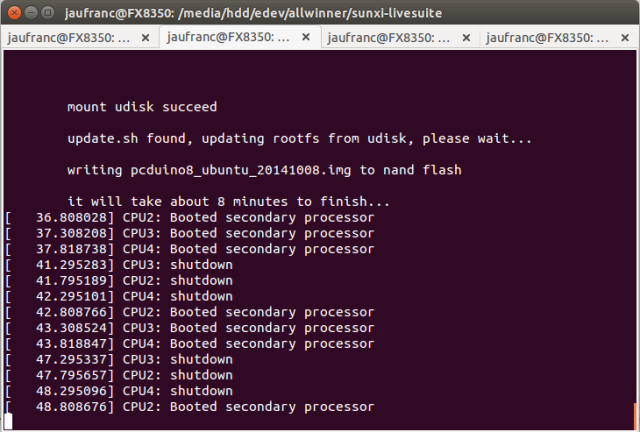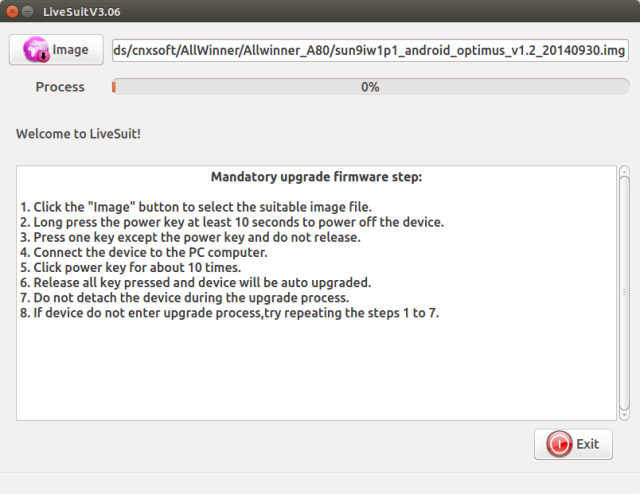Last month, pcDuino released Android 4.4 and Ubuntu images for pcDuino8 board powered by Allwinner A80 octa core processor, and since it’s the same board layout as A80 OptimusBoard, I decided to try it out, but it failed as the update script would try to flash it to a partition that’s too small for the root file systems. But last week, Ian Morrison and Minidodes gave it another try, and successfully booted Ubuntu, or more exactly Lubuntu, on A80 OptimusBoard. Both their screenshot reports sun9i platform in /proc/cpuinfo, so that’s definitely Allwinner A80, but only one core is shown. I’m not sure if it’s because the other are idled and don’t show, or for some reasons, the kernel only supports one core at this stage. Anyway, here’s how they did to install Lubuntu: Flash the kernel (pcduino8_kernel_livesuit_20141008.img) with PhoenixCard or Livesuit first. See instructions to use Livesuit with A80 OptimusBoard. […]
Zsun SD111 Is Now “Officially” an Hackable Wireless Flash Drive
Zsun SD11x are Wi-Fi flash drives for 8 to 128 GB eMMC, alternative to Sandisk or Kingston. Yesterday, I soldered the UART pins to Zsun SD111 (8GB) flash drive to access the serial console, but I did not manage to enter the terminal as it was password-protected. I posted my results anyway, as I was convinced I would get some clever ideas from my readers, some of which appeared to be a little time consuming, but Zoobab offered a simple solution that consisted in changing the boot parameters, by replacing /sbin/init by /bin/sh. The first step is to interrupt the boot by pressing space or another key, in order to access U-boot. Now we can check the U-boot environment ar7240> printenv bootargs=console=ttyS0,115200 root=31:02 rootfstype=jffs2 rw init=/sbin/init mtdparts=ar7240-nor0:64k(u-boot),64k(u-boot-env),6720k(rootfs),1216k(uImage),64k(NVRAM),64k(ART) bootcmd=bootm 0x9f6B0000 bootdelay=4 baudrate=115200 ethaddr=0x00:0xaa:0xbb:0xcc:0xdd:0xee ipaddr=10.168.168.1 serverip=10.168.168.10 stdin=serial stdout=serial stderr=serial ethact=eth0 Environment size: 361/65532 bytes Let’s keep everything the same, except the init, […]
How to Flash Firmware to Realtek RTD1195 Media Players
Android TV boxes based on Realtek RTD1195 SoC are cheap (about $60), with a relatively slow dual core Cortex A7 processor, but include fast interfaces such as USB 3.0, Gigabit Ethernet, and sometimes SATA, and are said to be very good at playing videos. After several months of development since they’ve first been spotted, RTD1195 media player are finally shipping. One of the models is M-195, which had its firmware recently released, and can be downloaded from copy.com, filefactory, mediafire, or solidfiles servers. This firmware is based on Android KitKat 4.4.2, with build number rtk-phonenix-eng 4.4 krt160 eng.ton.20141024.094201. Firmware update is pretty easy, and is operating system agnostic, since all you need to do is to basically copy the firmware file to a USB flash drive. A PC is not even necessary, as you can download the file and extract it directly from the mini PC itself. The same procedure […]
Beyond Debug Key Enables JTAG & UART Debugging, Supports OpenOCD
Beyond Semiconductor, a fabless semiconductor company based in Slovenia which develops their own 32-bit BA2x IP cores, has sent me one of their development tool, namely Beyond Debug Key supporting JTAG and UART interfaces either with BeyondStudio for the company’s BA2x processor, or the open source suite OpenOCD for other processors. Since I don’t have any Beyond Semi boards, I instead configured it, and quickly tried it with Atmel SAMA5D3 Xplained ARM Cortex A5 development board, and OpenOCD (Open On-Chip Debugger). The debug tool comes in the package above describing the key features of the kit: Performance Transfer rate in excess of 600 kB/s 30 MHz maximum JTAG clock Less than 20 μW power draw from target board Compatibility Fully compatible with Beyond BA2x processor family Access any 8-bit, 16-bit, 32-bit or 64-bit processors via JTAG Works with all JTAG compliant devices Software Support OpenOCD for access to a range […]
Add GPIOs to Windows, Linux, Android Computers and Devices with FTDI USB Adapters / Breakout Boards
It’s possible to to add GPIOs to your computer, (openWRT) router, or Android tablet using some FTDI USB dongles that expose I/Os. On operating systems based on Linux, including Android, you can use the GPIO sysfs interface (/sys/class/gpio) to easily control GPIOs from the command line, and in some cases Rx, Tx, CTS, .. pins can also be used as GPIOs. Zoobab has tried it with various FTDI USB adapters, and Oneping OP-1010 breakout board based on PL2303 HDX chip, and the results are mixed, but it could worth a try. There are currently patchsets ([1] and [2]) awaiting acceptance to mainline kernel that will enable GPIO support for these USB devices, but in the meantime you need to patch the kernel yourself, and then enable the relevant options in the kernel config for example “USB_SERIAL_PL2303_GPIO” or “USB_SERIAL_FTDI_SIO_GPIO”. The first patch is for PL2303 chips, and the second for FT2xxx/FT4xxx […]
Updated Android 4.4 Beta and Ubuntu Images for pcDuino8 / A80 OptimusBoard Boards Released
pcDuino8 and A80 OptimusBoard are the only two Allwinner A80 development boards currently “somewhat” available, and albeit the PCB color is different, every else is basically identical, and pcDuino8 firmware should probably run on A80 OptimusBoard and vice versa. If you own any of these boards, you may interested in two images, one with Android 4.4 (beta), and one with Lubuntu, recently released by pcDuino / Linksprite. Android 4.4 (beta) 2014-10-08 – sun9iw1p1_android_optimus.img to be flashed with PhoenixCard (Windows) or Livesuit (Linux) Lubuntu 14.04? 2014-10-08 is comprised of two files: Kernel – pcduino8_kernel_livesuit_20141008.img to be flashed with PhoenixCard or Livesuit first. See instructions to use Livesuit with A80 OptimusBoard. Rootfs – pcduino8_ubuntu_20141008.rar. First extract the rar files to the root of an SD card or USB flash drive. There should be two files: pcduino8_ubuntu_20141008.img and update.sh. Now connect the mass storage device to pcDuino3 / A80 Optimusboard, and reboot the […]
Camera Not Working on Your Smartphone? No problem, Massage It!
I bought ThL W200 last year as my main (and only) phone, and my review was rather positive, because after testing the phone for a week or so I did not encounter some of the issues. After a short while I found GPS was not working very reliably, so I had to find instructions to fix GPS on Mediatek phones, then the first battery died after about 8 months, maybe that’s normal for my usage, but I was expecting it to last longer. Finally, after a while both front and rear cameras started to have issues such as green screen, color lines, or simply refusing to work with the message: “can’t connect to camera”. In all of this the good news (for me) was I was not alone, and I saw some instructions saying, you had to terminate the camera app, clear all data, and restart the phones. It seemed […]
How to Upgrade Allwinner A80 OptimusBoard Firmware
After informing Allwinner I had some rather slow write speed (3MB/s) to the NTFS partition of my USB drive on my A80 OptimusBoard, they kindly provided a new compressed Android firmware image (sun9iw1p1_android_optimus_v1.2_20140930.img.7z) with some NTFS optimizations that can be downloaded from baidu (password: x2tz), mega.co.nz or simos.info (please only use this link, if the other two do not work as it’s a private website and monthly bandwidth may be limited). I vaguely remember tools like LiveSuit (Linux) or PhoenixSuite (Windows), and I ended up on sunxi-linux Livesuit wiki as I’m running Ubuntu 14.04 on my PC, but you should be able to flash the firmware with PhoenixSuite if you run Windows. The instructions below can also be used for other Allwinner based devices. First you need to install LiveSuit, and build Allwinner USB drivers as follows:
|
1 2 3 4 5 6 7 8 |
sudo apt-get install dkms git build-essential git clone https://github.com/linux-sunxi/sunxi-livesuite.git cd sunxi-livesuite/awusb make sudo cp awusb.ko /lib/modules/`uname -r`/kernel/ sudo depmod -a sudo modprobe awusb cd.. |
In order to use LiveSuit as a normal user, you also have […]


